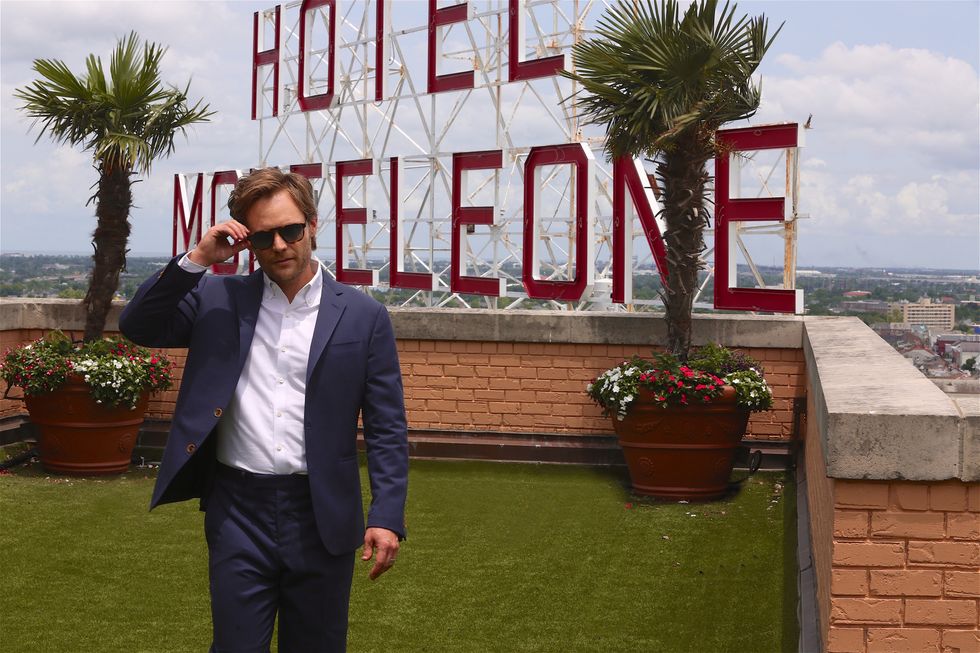Producer Frank Monteleone on the Secrets to Funding Your Film
It's incredibly hard to make something with no money. So raise as much as possible.

Frank Monteleone
Written by Frank Monteleone
Is there anything more important than getting your project funded? Well, yes, a ton—script, story, actors, the list goes on. But: no money, no film.
Even the lowest budgeted film has to spend money. As my friends and I embarked on the path towards getting our films made, we found that the biggest obstacle in going from pitching to production was how to secure financing.
With that in mind, I’ll share two things I rely on to get my projects funded and off the ground, both of which shift how you look at approaching investors and investing overall.
First: a sense of inevitability.
That word should become your mantra. At Full Armor Films, we develop a full slate, and there is always a moment when a project moves from ‘in development’ to ‘inevitable’, and I realize: “We will make this.”
It may take a year or five years, but it’s a crucial and powerful shift that’s almost undetectable because it can sneak up on you. In fact, I would argue it’s not a decision you reach logically, but rather it’s a gut check— the fuel and drive you need to power the decision you must make to move forward and accomplish your goal.
The Rise of the Independent Studio and Louisiana Film Incentives | Frank Monteleone | MAKE ITwww.youtube.com
I’ll give you an example. When we produced our film American Reject, the key to finally getting the project made was when I started to think of the outcome as inevitable. Even though we had pitched to major studios and agencies for packaging and had gotten some great responses, for a myriad of reasons it was always “No” at the end of the day.
Eventually, I decided not to take “No” for an answer, and that is when that subtle shift happened. I began to think about how we could make the film ourselves, and after that I was only limited by the capacity I had for believing it could happen. I believed that the film was going to be made no matter what, and doors started opening. Within one year, we had raised the financing after being stuck in development for the previous five.
When you can visualize that what you’re working on will get made no matter the circumstances, then you’re on what I like to call a ‘moving train.’ People who are pitching are typically looking for a person who can greenlight them, or start the train moving, if you will. But, really, the key is to make the people you’re pitching think they’re boarding a train that’s already in motion.
That sense of inevitability and forward momentum can create a powerful reaction, making it feel like your project is something they won’t want to miss out on: “You’ll be somewhere new once you’ve completed this journey. Don’t you want to be where I’ll be when this project’s done?”
That’s a different perspective for approaching a conversation about funding, because now you’re not really talking about money, you’re talking about something that’s going to happen in the near future, and you’re asking people to decide if they want to be there with you when all is said and done.
Which brings me to the second and most important thing when it comes to finding ways to fund your project: it’s YOU. What they’re really investing in when someone invests in your film is you. You as the artist, the person, the one who’s bringing the confidence in your abilities and in what you have to say.

Tying it back to the first point: you are the moving train, the one who’s pitching a project that will reach its inevitable destination. It’s your story. Your film. Do you need offering documents and a good entertainment attorney, of course! You need to be buttoned up.
But never underestimate putting your personal story into the pitch, because vulnerability and passion— while they may seem scary or out of place in a financial discussion— are what create that powerful reaction making others want to get on board.
When you discover that you are the real investment, then you have the keys to getting the deal done. It’s inevitable.













